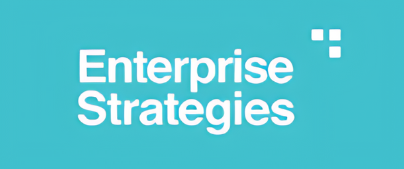07 Sep Millennials in the Workplace: Are the Stereotypes True?
 Ideas and insights about millennials in the workplace seem to float around a lot in the media – reported trends, what millennials like and do not like, ways they spend their money, and how they are different than generations before them – the list goes on. These topics and opinions from a range of professionals often differ, so this compilation includes recent, relevant statistics about millennials in the workplace.
Ideas and insights about millennials in the workplace seem to float around a lot in the media – reported trends, what millennials like and do not like, ways they spend their money, and how they are different than generations before them – the list goes on. These topics and opinions from a range of professionals often differ, so this compilation includes recent, relevant statistics about millennials in the workplace.
Job-Hoppers
Millennials are sticking around more often than you might think. According to a Pew Research study, 75% of millennials have been with their employer for 13 months or more. More often than not, millennials are starting in entry-level jobs, and then want to find jobs that require more experience as they gain it. Ninety percent of millennials said they would stay at their job for 10 years or more if they knew they would have annual raise opportunities and upward career mobility.
A common headline is that millennials are continually job-hopping, and this often comes with a negative connotation. However, changing jobs every couple years, especially as a young adult, is not a bad thing. Millennials are just as likely to stay with their employer as young adults were in 2000. They are seeking new opportunities, better pay, and moving up after putting in their time – which is what previous generations did as young adults, too.
Lazy Workers
Millennials are often stereotyped as being entitled and not hard workers. While some young adults are, so are people of all age brackets – millennials are no lazier than any other age group. In fact, many young professionals have side jobs and volunteer regularly.
Millennials aged 18 to 26 are the most likely demographic to have side hustles, though other generations do additional work as well. Some people do other part-time work because they have to, and others do it because they can get paid to do something they enjoy. Common side jobs for millennials include being a freelancer, dog-walker, bartender or fitness instructor.
Many millennials also use their spare time to volunteer for organizations supporting social issues important to them. According to the 2016 Millennial Impact Report, 46% of millennials volunteered for and 52% donated to a cause they care about in the past month.
Technology Addicts
People across all age groups spend a good amount of time using technology – whether it be on a laptop computer, smartphone, or TV. A report from Nielsen, a firm that measures consumer trends and habits, found that adults age 35 to 49 spend on average 5 hours more per week using media than millennials. The consensus is that everyone spends a lot of time on social media or interacting with technology in some way. While overdoing this can be a bad thing, many jobs require workers to be constantly connected and savvy with technology. Millennials often provide a different perspective when it comes to technology in the workplace, and this helps, not hurts, a company.
Stereotypes exist for a reason. But like all stereotypes, they don’t define an entire generation. Millennials appreciate hard work and dedication in the workplace but also recognize that quality of life outside of work is important too. Millennials are the first generation to have grown up with technology, and they are successfully making strides toward navigating this technology in the workplace without letting it take over.
